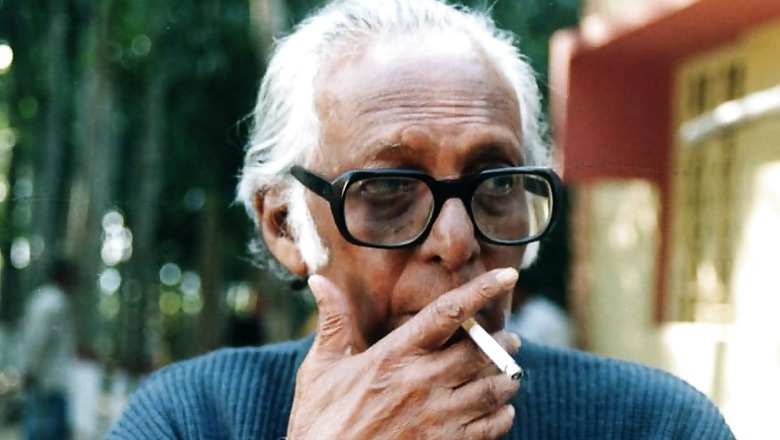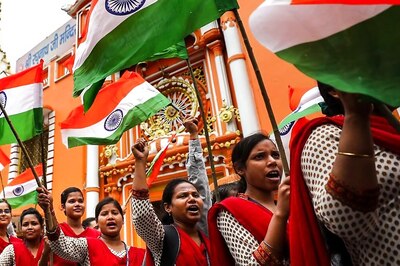
views
Legendary filmmaker Mrinal Sen, who paved the way for parallel cinema in India, passed away on Sunday morning at 10:30am at his Bhowanipore residence in Kolkata. He had been suffering from a heart ailment for a while. His death marks the end of an era in Bengali cinema.
West Bengal Chief Minister Mamata Banerjee expressed her condolences and tweeted, “Saddened at the passing away of Mrinal Sen. A great loss to the film industry. My condolences to his family.”
Born in 1923 in Bangaldesh's Faridpur, Sen moved to Kolkata after high school, and graduated from Scottish Church college. As a student, he was involved with the cultural wing of the Communist Party of India.
He developed interest in films through book on film aesthetics. Initially he worked as a medical representative but later he took a job of an audio technician in a Calcutta film studio, which was the beginning of his film career.
In 1955, he began his directorial career with the film Raat Bhor, starring Uttam Kumar, who was yet to become a star. Neel Akasher Neeche was his next film. He earned international acclaim with the film Baishe Shrabon (the date of Rabindranath Tagore's death).
Bhuvan Shome, which was released in 1969, won the National Film Award for Best Direction and National Film Award for Best Feature Film. It launched him as a force to reckon with in Indian cinema, and won him international recognition as well.
Sen was a contemporary of Satyajit Ray and Ritwik Ghatak. His films were harsh critiques of the Indian society and raised difficult questions. Mrigayaa (1976), which marked the debut of Bollywood star Mithun Chakraborty, was an attempt to expose how people of tribal origins are exploited by landlords in rural India.
Sen left his mark among international audiences too, with his films being screened at major film festivals around the world. He received several awards from almost all major film festivals, including Cannes, Berlin, Venice, Moscow, Karlovy Vary, Montreal, Chicago, and Cairo. In 1983, he won the Cannes Film Festival - Jury Prize for Kharij. He also served as member of international Jury at various film festivals, including Cannes, Venice, Berlin, Moscow, Tokyo, Tehran, Mannheim, Nyon, Chicago, Ghent, Tunis, and Oberhausen.
In 1981, the Government of India awarded Sen with the Padma Bhushan. He was also an honorary Member of the Indian Parliament from 1998 to 2003. The French government awarded him the Commandeur de l'ordre des Arts et letters (Commander of the Order of Arts and Letters), the highest honor conferred by the country, in 1985.
The Dadasaheb Phalke Award, the highest honour given to an Indian filmmaker, was awarded to him for the year 2003. In 2017, Sen was was inducted as a member of the Oscar Academy.



















Comments
0 comment